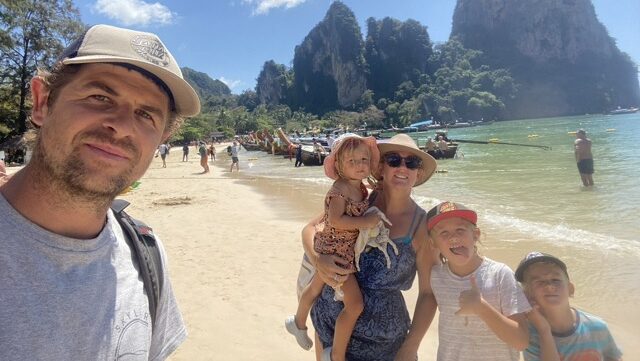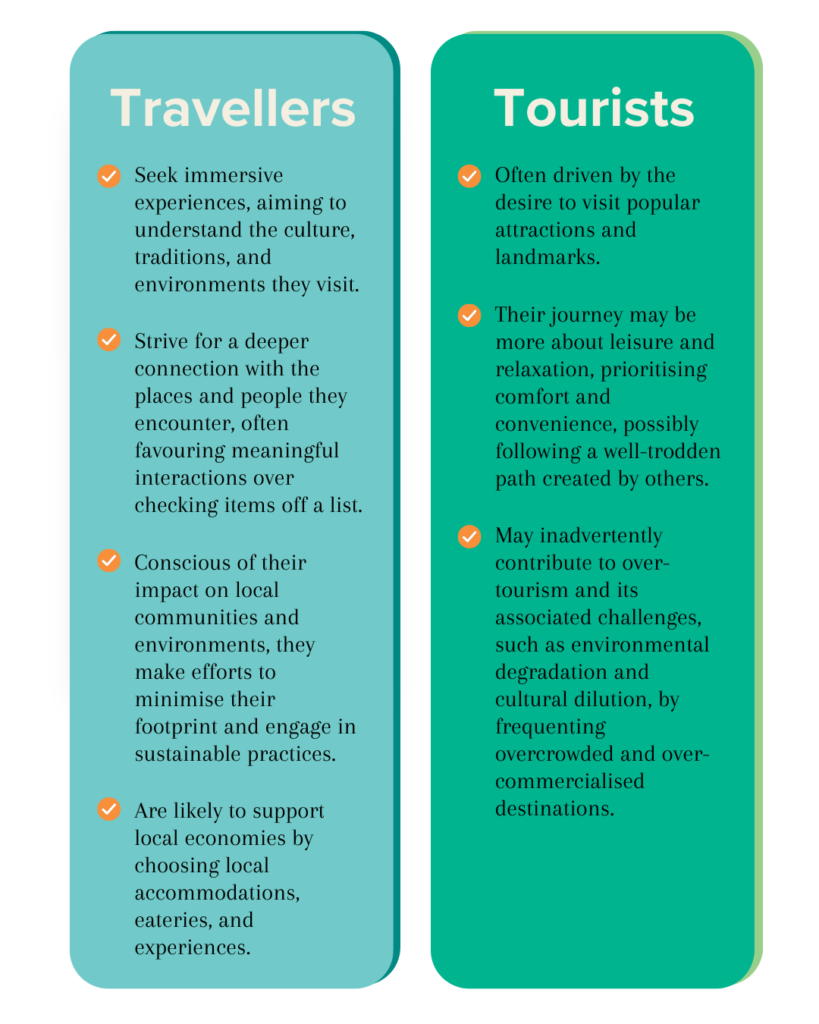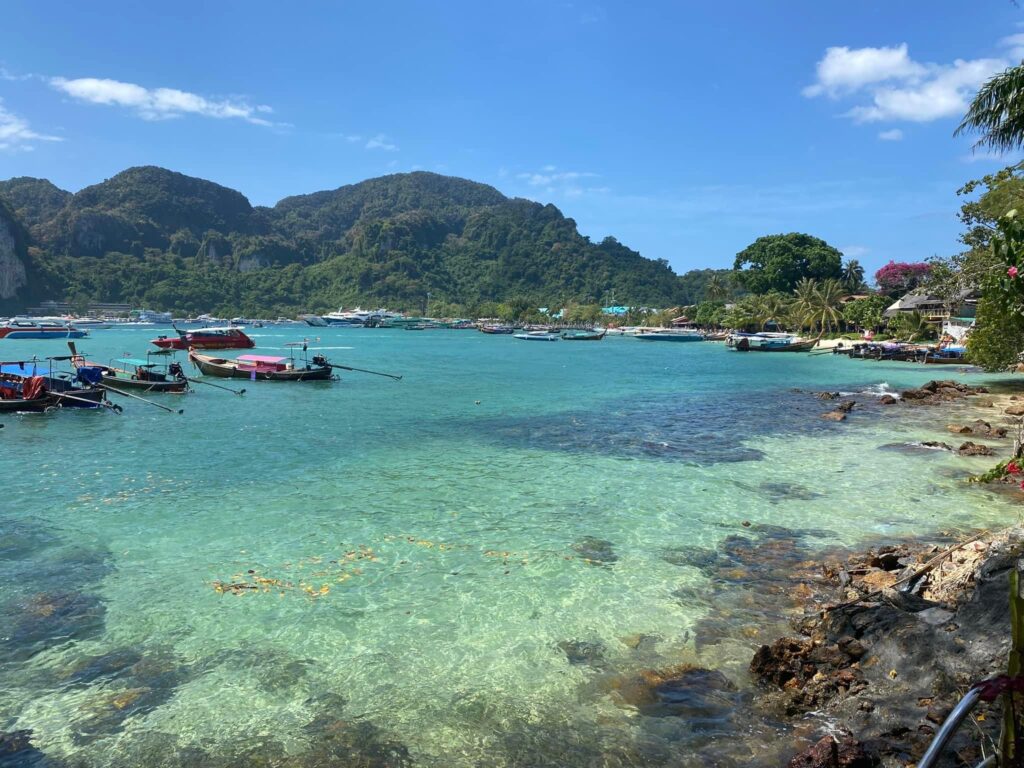
Charlie Rutherford
Lead – Destination Marketing & Campaigns
As an avid traveller and keen environmentalist, I have an inherent passion for exploring nature’s wonders and promoting responsible tourism.
Carl, Charlotte and I first worked together at NSW National Parks, where we played an active role in promoting the positive impacts tourism can have on our natural environment, if done responsibly.
Considering myself more a “traveller” than a “tourist” I spend a lot of time researching and seeking out destinations off the beaten track. Those offering immersive experiences both in culture and nature. So, my recent holiday destination came as a surprise to those that know me well….
The Tale of Thailand
Koh Phi Phi in Thailand, not an obvious choice for my family, but a destination close to our hearts for its sentimental value. However, what awaited us 20 years after our initial visit, was a stark contrast to the pristine paradise we remembered from our 20s.
The reality of over-tourism was undeniable, and honestly, quite confronting. We found it incredibly hard to authentically connect with the culture through the crowds and commercialisation. The marine environment we had experienced previously was vacant of life, instead filled by tourist boat after boat delivering the promised insta-shot for its consistent flow of paying customers.
This sparked many questions for me including: How can destination marketing prioritise sustainability and authenticity in countries where economic development is all about volume?
The reality of over-tourism was undeniable, and honestly, quite confronting.

Navigating the Dilemma
The disconnect between a destination’s environmental assets and the need to protect them to secure sustained economic growth both confused and distressed me.
There is an opportunity here though – as research indicates, travellers are increasingly seeking out sustainable and responsible destinations. Choosing destinations that communicate their values and commitment to the natural environment and their local culture is becoming a key influencing factor in traveller’s decision making, particularly for Gen Zs. We are increasingly seeing destinations, like Fiji embed their unique culture in their tourism assets and marketing. This is essential to the success of our work with Kiribati who are clearly a destination for “travellers” seeking adventure off the tourist trail.

The Responsibility
Reflecting on this experience, just emphasised the responsibility we have as destination marketers to guide and support our clients and partners to value and enhance their destinations and experiences to protect these important natural assets. There is great opportunity for destinations promising authentic and immersive experiences of natural beauty and cultural immersion for those of us that consider themselves more as “Travellers” than “Tourists”. By doing this and attracting the types of visitors whose values align to our community’s values, we can build advocates for responsible travel and the environment more broadly.





